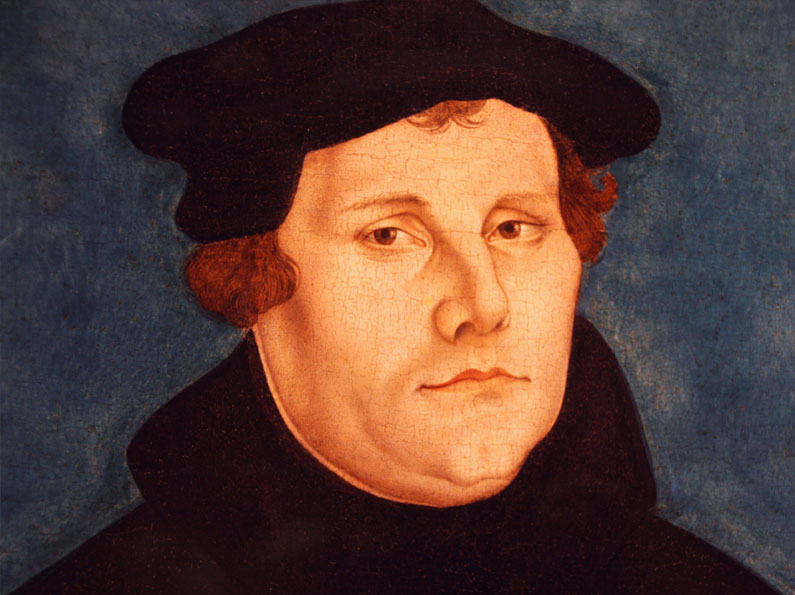We have been celebrating the 500th anniversary of Luther’s posting of the 95 theses on the Wittenberg church door, October 31, 1517. At the time, Luther had no idea this would be the spark to light the reformation of the church. April 18, 1521 was a day of greater personal impact for Luther. At the Imperial Diet (assembly) in the city of Worms (“The Diet of Worms” makes for an easy joke with confirmation students!), Luther refused to go against Holy Scripture and conscience when asked to recant of his controversial writings. The following dialogue contains the climax of Luther’s witness before the emperor and papal representatives.
Johann Eck, general secretary of the bishop of Trier and speaker for the emperor: “Martin, you have answered more impudently than befits your person, and not to the point either…If you had recanted those [writings] which contain a large portion of your errors, no doubt his imperial majesty, in his innate clemency, would not have tolerated a persecution of the rest which are good. But now you revive those [errors] which the general Council of Constance, composed of the whole German nation, has condemned, and you wish to be refuted by means of Scripture. In this you are completely mad. For what purpose does it serve to raise a new dispute about matters condemned through so many centuries by church and council? Unless perhaps a reason must be given to just anyone about anything whatsoever. But if it were granted that whoever contradicts the councils and the common understanding of the church must be overcome by Scripture passages, we will have nothing in Christianity that is certain or decided. And for this reason his imperial majesty seeks from you an answer, simple and straightforward, either a no or a yes: Do you wish to regard all your works as catholic? Or do you wish to retract anything from them?”
Martin Luther: “Since then your serene majesty and your lordships seek a simple answer, I will give it in this manner, neither horned nor toothed: Unless I am convinced by the testimony of the Scriptures or by clear reason (for I do not trust either in the pope or in councils alone, since it is well known that they have often erred and contradicted themselves), I am bound by the Scriptures I have quoted and my conscience is captive to the Word of God. I cannot and I will not retract anything, since it is neither safe nor right to go against conscience. I cannot do otherwise, here I stand, may God help me, Amen.”
The following day, an imperial decree was read: “Our ancestors who were also Christian princes, were nevertheless obedient to the Roman church which Dr. Martin now attacks. And because he is determined to move not even a hair’s breadth from his errors, we are not able with propriety to depart from the example of our ancestors in defending the ancient faith, and giving aid to the Roman see. Therefore, we shall pursue Martin himself and his adherents with excommunication, and use other methods available for their liquidation.”
Martin Luther lived the remaining 25 years of his life as an outlaw of the empire, under penalty of death. Under the protection of some of the German nobility, Luther was able to continue to preach and write prolifically and to lead the burgeoning reformation of Christ’s church. Only their opponents referred to them as “Lutherans.”

